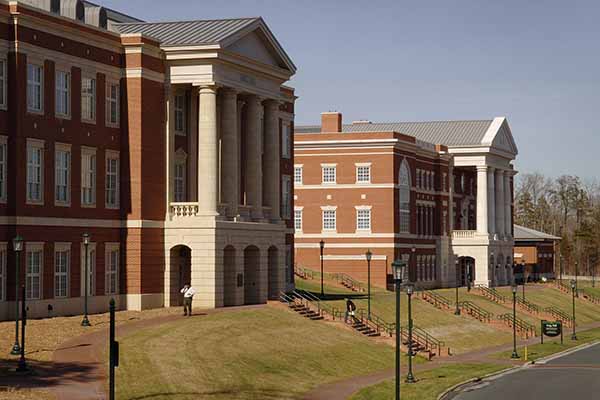
UNC Charlotte is expanding its enrollment of students in computational engineering-related fields. With $41.2 million in funding from the N.C. General Assembly for “Engineering North Carolina’s Future,” the University will recruit an additional 2,000 undergraduate and graduate students over the next five years.
“Our University is our city's research hub and a driving force of economic development in our region and state,” said Chancellor Sharon L. Gaber. “The demand for highly skilled, innovative graduates in computer science and engineering fields is dramatically increasing. This investment by the state in our students, faculty and facilities will pay dividends for all North Carolinians.”
To support the education of students in these fields and the development of critical research, the funding includes the hiring of 20 new faculty members for its William States Lee College of Engineering, College of Computing and Informatics and School of Data Science in four clusters: energy systems, transportation and advanced mobility, advanced manufacturing, and smart and sustainable cities. The strategic new cluster hires align with the University’s areas of research excellence and focus.
The state’s investment also includes the design and construction of state-of-the-art facilities and purchase of advanced equipment, along with expansion of several innovative University programs to further strengthen computational engineering-related education at Charlotte.
A leading-edge maker space, visualization and simulation labs, active learning classrooms and collaborative research space for interdisciplinary teams of engineers, AI and cybersecurity experts, and data and computer scientists will be built as part of the renovation and expansion of existing spaces. Planned programmatic enhancements include the integration of AI across all engineering and computing curricula, adding an engineering concentration in machine learning, and enhancing the School of Data Science, the first of its kind in North Carolina.